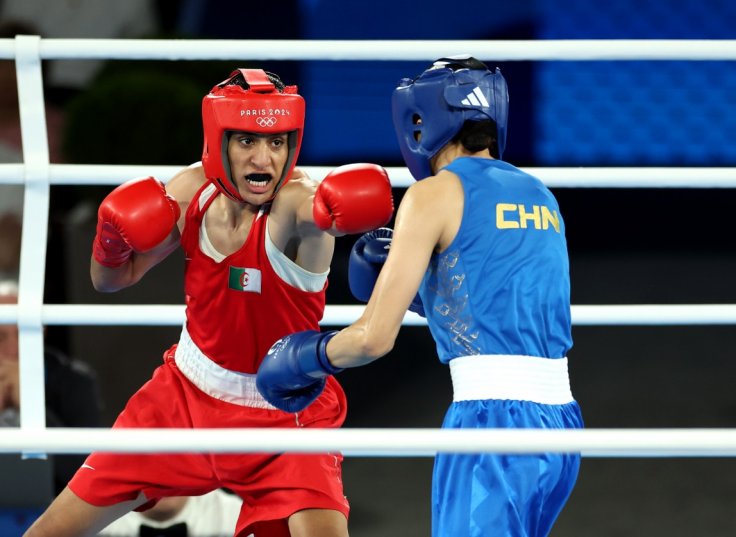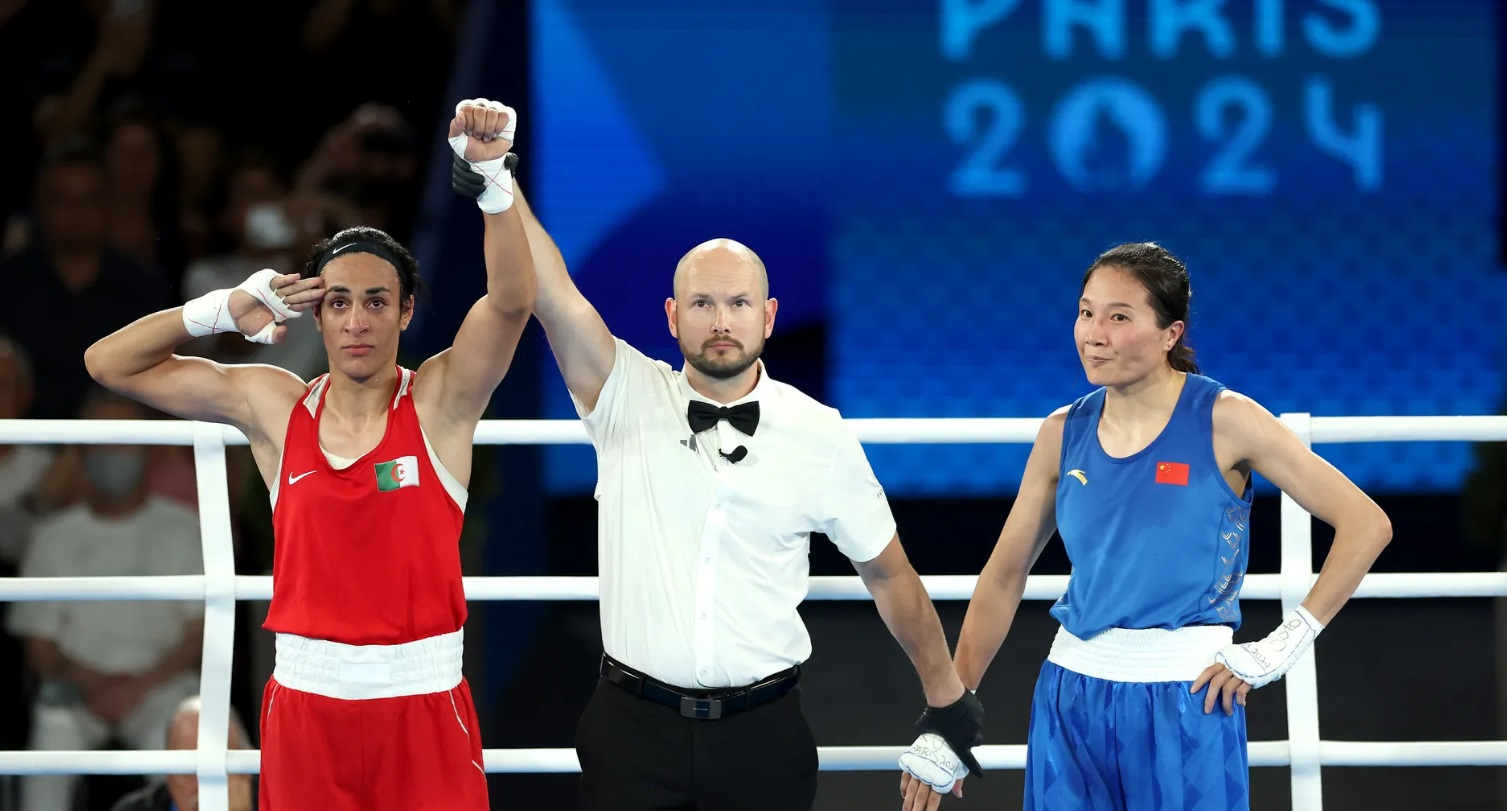The most controversial gold medalist of this Olympic Games was confirmed as gender-row boxer Imane Khelif won the women’s welterweight title at Roland Garros on Friday. Amid overwhelming international hostility, Khelif, 25, dominated her opponent on Court Philippe Chatrier, the iconic tennis court turned boxing arena for the final stages of the Games.
The Algerian athlete, who has faced increasing scrutiny after her effortless path to Olympic victory, did not shy away at the post-fight press conference. Instead, she delivered a verbal barrage against critics who argue she shouldn’t have competed against women, especially after failing a sex test last year. However, this might just be the end of everything.
Gold Medal Shocker
X
Within two minutes, the inevitable question arose: What message did she have for her critics? Khelif, who has been on target throughout the past fortnight, delivered her response with precision, not missing her mark.
“I am fully qualified,” she said. “I am a woman like any other woman. I was born a woman, I lived as a woman, I competed as woman – there is no doubt.”

X
The 25-year-old wasn’t finished yet. She remarked, “There are enemies of success of course,” she added. “That gives my success a special taste because of these attacks.”
Entering the welterweight final against China’s struggling Yang Liu, Khelif had already secured 12 consecutive wins. There would be no unlucky 13th fight for her. What we witnessed was a continuation of her usual dominance.
A long-reaching left jab, followed by a devastating right hand. Over and over, Khelif drove her opponent backward, her legs almost flailing in a cartoonish manner.

X
She landed multiple precise blows squarely on the nose, combining power with pinpoint accuracy.
Khelif hadn’t lost a round before this bout, and there was no threat of her doing so now, especially with a crowd so biased that it booed Liu as she entered the ring.
Five judges, five identical scorecards, and once more, the decision was unanimous—though few other things are.
Not The End
Critics on the opposing side of this highly polarized debate, fueled by opinions but lacking concrete evidence, will likely use her win as further proof that something is wrong.

X
They’ll argue that the murky, Russian-led IBA was justified in barring her from last year’s World Championships, and that the IOC—currently in conflict with the IBA and threatening to remove boxing from the Olympic program—needs to scrutinize more than just what’s listed on someone’s passport before allowing them to compete in the women’s category.
Khelif, who received an immediate call from the country’s president, also delivered a political message. “I want to tell the world that they should commit to the Olympic principles and they should not bully people,” she said.

X
“This is the message of the Olympics. I hope people stop bullying. We are in the Olympic to perform as athletes, to our families. I hope will not see any similar attacks in future.”
Khelif’s wish might go unfulfilled. Just minutes after the final bell, tennis legend Martina Navratilova weighed in, tweeting, “Shame on you, IOC” and “Thanks for nothing.” This gold medal won’t settle the controversy, not even for the weekend.
On Saturday night, Taiwan’s Lin Yu-Ting, another athlete who failed a gender test and was similarly thrown out of those World Championships, will compete for gold in the featherweight division.







